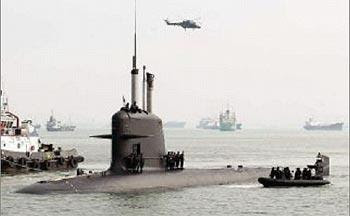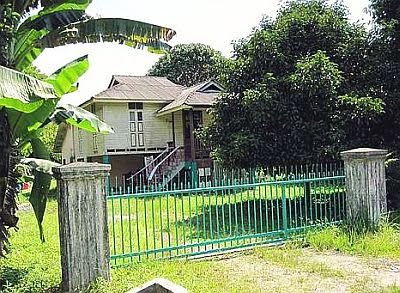Foreign Elements in Sri Lankan Presidential Election?
Emerging news from Sri Lanka suggested that foreign interference was the factor for the unification of the opposition pact ~ "common candidate", who have defeated the then President, Mahindra Rajapaksa (MR).
2. Usually when we spoke about the change of government through the interference of foreign elements, the most common knowledge among the people were the involvement of CIA in changing the government who failed to toe their guidelines. However, in SL scenario, MR supporters are putting the blame not on CIA but Research Analysis Wing (RAW), India's external chapter of intelligence service. While the allegation was unproven and denied by India yet open source had given some facts on India's hand in the recently concluded election. Some facts were analysed and published here for readers references.
i. SL expelled the Colombo station chief of RAW just before the election take place, accusing him of coordinating the opposition pact to defeat MR. Even though India said that transfers were routine decision, yet the internal source in Colombo refused neither to confirm nor deny the news.
ii. India's involvement in SL's domestic politics can be traced way back from 1948 since SL's independence from British. However, India's involvement in this tiny island was straightforward and more aggressive after 1983 pogrom which killed over 2000 Tamils. In fact India was behind the LTTE in the early years until the Indian National Army (INA) was sent to NorthEast as a peacekeeping force, and the rest was history. India's involvement in SL's issue was very much connected to its own geopolitical interest rather than the ethnic, culture as well as religion connection between Tamil in NorthEast and India especially with Tamil Nadu (TN). The geopolitical interest here was to keep the Indian Ocean out of external influence in particular from China. Nevertheless, after the war ends in May 2009, MR was seen leaning more on China, India's regional rival.
iii. The concern turned red late last year when MR allowed two Chinese submarines docked in Sri Lanka's port on two separate occasions. These port calls had violated a standing maritime agreement between two countries. It seems under this standing order, SL shall inform New Delhi whenever there are a port call by foreign warships. In-fact China has pumped in huge amount of money to build port in the island's harbour in the south. Military strategist who are familiar with naval port said the facilities have all the capability to be converted to naval use during the time of war.
Analysis
3. India's national security analysts had been closely monitored MR since he took over the highest office in 2005. Under his administration, China's influence and capital investment had been pervasive across island. Even, within a short period MR had visited Beijing at least seven times. This development reflects the diminishing influence of India on SL and that does not goes well with India's geopolitical interest.
4. With China at behind of the curtain and disinclination of MR to execute his promises to provide the political solutions on Tamil issue, India need to take some drastic action to safeguard its national interest. Tamil sentiment has taken place as a national issue after the new TN government through its State Assembly have registered a strong protest on the atrocities committed on Tamils and urged New Delhi to take political and economic embargo on Colombo. The anti-New Delhi sentiment was so strong to the extend the then state government which was aligned to Congress administration, then federal government was defeated while national parties (Congress and BJP) were humiliated in the Lok Sabha election at state level in 2014. While "Modinomics" was so vibrant across India but in TN nothing comes close.
5. RAW as a foreign intelligence service agency may have been given a task to reorganize the opposition pact to stand against MR. However, in my opinion the role that RAW agents may have played is very minimal and in reality, it is not the major factor for MR's defeat.
6. As I have written earlier the real factor for the defeat of MR was his failure to win over the Tamils, as well as the diversion of his administration from all the good governance's values. If ever, he have fulfilled the above two factors, I'm pretty sure by now he have been elected for third term.
5. RAW as a foreign intelligence service agency may have been given a task to reorganize the opposition pact to stand against MR. However, in my opinion the role that RAW agents may have played is very minimal and in reality, it is not the major factor for MR's defeat.
6. As I have written earlier the real factor for the defeat of MR was his failure to win over the Tamils, as well as the diversion of his administration from all the good governance's values. If ever, he have fulfilled the above two factors, I'm pretty sure by now he have been elected for third term.
#end


Comments